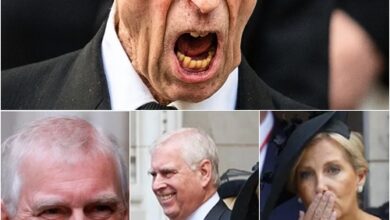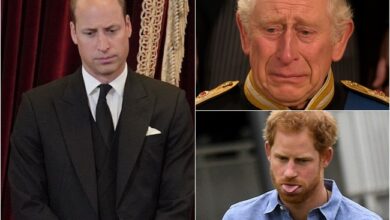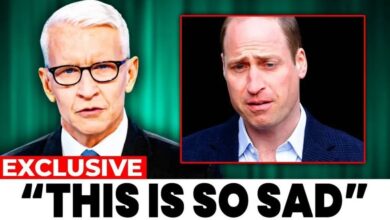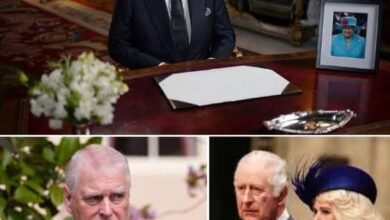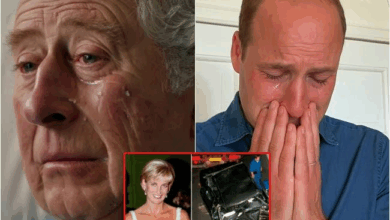“Ex-Royal Cop Paul Page Reveals Shocking Dark Secrets of Prince Andrew — Proof Inside!”
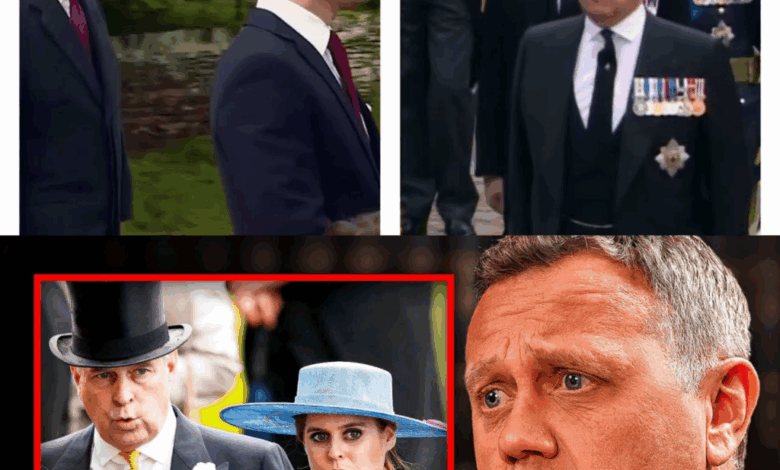
Ex-Royal Cop Unveils Dark Secrets of Prince Andrew: Inside the Palace Drama and Scandal
Prince Andrew’s public life has been rocked to its core. In a rare and unprecedented move, the Duke of York asked Queen Elizabeth II for permission to step back from his public duties. But behind this public retreat lies a far more complex and troubling story—one that ex-royal police officer Paul Page is now bringing to light with sworn statements, rare documents, and a trove of corroborating evidence.
The Hidden Side of Royal Life
For decades, the royal family has been shrouded in a carefully maintained image of tradition, grace, and dignity. Yet, as Paul Page reveals, the reality inside the palace walls is far from the polished facade shown to the world. Behind the velvet curtains and glittering events, there exists a world of tension, entitlement, and unchecked power—especially when it comes to Prince Andrew.
Those closest to the Duke describe him not as the charming royal often portrayed in the media, but as a man with a volatile temper and a sense of entitlement that made even his protectors uneasy. The police officers assigned to guard him faced a unique challenge—not only protecting him from outside threats but also managing his unpredictable moods and harsh treatment of staff.
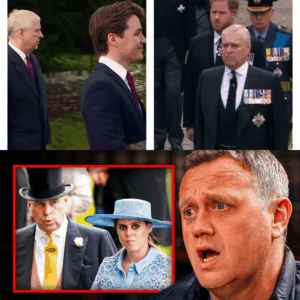
A Difficult Man to Serve
Accounts from former protection officers paint a picture of a man who could be demeaning, shouting, swearing, and verbally abusing those around him over minor inconveniences. One vivid example recalls Andrew’s fury at security barriers that took seconds to lower at palace gates. Frustrated by delays, he would roar insults at officers risking their lives to keep him safe.
Inside Windsor Castle, his behavior was no less troubling. Security cameras once caught him pacing outside the Queen’s private apartments at odd hours, defying protocol and unsettling staff. When confronted, Andrew’s response was sharp and entitled: “This is my house, and I’ll go where I want.”
The Teddy Bear Ritual: A Symbol of Control
One of the most striking revelations involves a seemingly innocuous detail—the arrangement of teddy bears on Prince Andrew’s bed. Staff were instructed to place the bears in precise order, guided by a laminated photo hidden in a drawer. Failure to do so risked angry outbursts from the prince.
While it might sound trivial, this ritual symbolized a deeper culture of control and coercion within the palace. Staff learned to navigate these arbitrary demands carefully to avoid humiliation or punishment. This small detail highlights how power dynamics in the royal household often blurred the lines between duty and emotional labor.
Loyalty, Silence, and Hierarchy
The palace operates as a miniature kingdom with its own rigid class system. Senior household figures, military officers turned ceremonial gatekeepers, and long-serving staff all play roles in maintaining the monarchy’s image and order. Loyalty is prized above all, and questioning a senior royal’s behavior is often unthinkable.
This culture of silence allowed problematic behavior to persist unchecked. Protection officers and staff, bound by duty and fear of reprisal, rarely spoke out, even as they witnessed troubling signs. The unspoken rule was clear: keep your head down, don’t rock the boat.
The Mysterious Visitor: Ghislaine Maxwell
Among the many secrets revealed is the unusual treatment of Ghislaine Maxwell, a figure closely linked to Prince Andrew. Unlike other guests, Maxwell’s visits to Buckingham Palace were shrouded in secrecy. Palace staff were reportedly instructed not to log her name in the official appointments book, a break from standard protocol that raised eyebrows.
Maxwell’s connection to Jeffrey Epstein, the disgraced financier convicted of sex trafficking, has been a source of intense scrutiny. Her frequent, discreet visits to the palace fueled speculation about the nature of her relationship with Prince Andrew and the extent of the royal family’s knowledge of Epstein’s activities.
A Legacy of Privilege and Entitlement
Paul Page’s account suggests that Andrew’s behavior stems from a lifetime of privilege and a lack of accountability. As the Queen’s favored son, he was reportedly shielded from consequences that might have curbed his worst tendencies. Unlike his siblings, Andrew demanded obedience rather than inspiring respect, expecting loyalty without giving it in return.
His volatile temper, coercive control over staff, and reckless disregard for rules paint a portrait of a man insulated by status, whose actions left lasting scars on those around him.
The Broader Implications
The revelations about Prince Andrew are not just about one individual’s flaws but expose the broader culture within the monarchy—a system where hierarchy, loyalty, and silence protect power at the expense of truth and justice.
As public outrage grows and legal scrutiny intensifies, questions remain about how far the scandal will reach and what reforms might be necessary to prevent such abuses in the future.
Conclusion: Unmasking the Royal Curtain
The story of Prince Andrew, as told by ex-royal cop Paul Page, lifts the veil on a world few have seen—a world where privilege masks harsh realities, and where power can corrupt even the most revered institutions.
This unprecedented glimpse behind palace doors challenges us to reconsider the myths of royalty and to demand accountability, transparency, and respect for all those who serve and are served by the crown.
